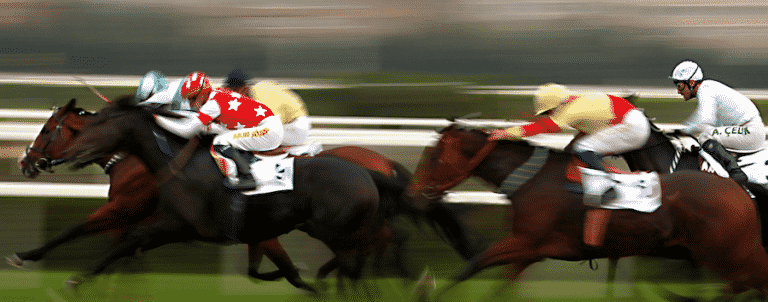4 Ways Brexit Will Impact UK Horse Racing
As 2020 draws to a chaotic close, the grim possibility of a no-deal Brexit remains fresh, despite cautious progress in the negotiations. Both the UK and EU are engaged in a 1-year transition period that started on January 1, 2020, when the UK formally left the European Union.
If there is a no-deal Brexit on 31 December 2020, the UK would sever all trade and economic treaties with EU overnight. Without a trade deal, virtually all aspects of the UK economy would be impacted in January 2021.
This also includes the British horse racing industry, which is already facing an existential crisis thanks to COVID 19.
It is not just about British racing
A no-deal Brexit could spell disaster for not one but two national equine industries across the English Channel. Apart from the UK horse racing industry, the fortunes of the Irish racing and bloodstock industry is inextricably linked to Brexit.
Ireland is a relatively small island nation on the world map – but on the global horse breeding map, it is a giant – the biggest breeder of thoroughbreds in Europe, and the third biggest in the entire world. Buyers from around the world come to Irish thoroughbred auctions in places like County Kildare.
Among its 6000+ registered breeders, there are Irish, English, and as of recent years, Arab sheiks, investors, and horse enthusiasts. Many industry experts consider the UK and Irish horse racing and breeding industries as one, not two separate entities.
British stud farms cannot produce enough foals to cater to the demand created by its hectic domestic racing season. Horse imports from Ireland, with whom Britain shares a border at Northern Ireland, are crucial in bringing fresh runners each year to Cheltenham, Epsom, and other major races.
The Tripartite Agreement could be a major casualty
Historically, three nations have evolved a close trade relationship in horses across the English Channel – the UK, Ireland, and France. Irish exports to continental Europe flow through the UK and across the Channel into France – it is the fastest and most economical route.
When British thoroughbreds leave the islands to participate in European events, they take the same route. Likewise, for horses being exported to the UK from European/EU horses arriving for UK races, French ports at Calais are the main transit points.
And the Tripartite Agreement (TPA) is the main agreement on the subject between the three nations. The TPA is a very old treaty, even older than the UK’s entry into the European Union, which happened in 1973. But as of now, it is a part of EU law that permits free movement of thoroughbred racehorses between the UK, Ireland, and France.
In the absence of TPA, all racehorses being transported between these three countries would have to undergo health checks at the border. In the event of a no-deal Brexit, UK racehorses would no longer officially enjoy the privileges of free movement.
An estimated 26,000 horses move between the three countries each year for races, sales, and breeding purposes. If all those horses end up requiring individual inspection, it would be disastrous, both for the businesses as well as the horses, which are highly sensitive animals.
The impact on breeding markets in and outside the UK
Any adverse changes to the TPA would severely impact the breeding and horse auction industries in the UK and Ireland. Over 10,000 horses move between the two countries each year, with many of them ending up in UK auctions.
Irish breeders make up a significant portion of sellers at prominent UK auctions, like the Tattersalls. But it is not just the Irish who will be affected by a no-deal Brexit. The EU horse breeding markets also send a lot of young thoroughbreds for sale into the UK auctions, particularly from France, Germany, and Italy.
Billions of Euros are at stake on both sides of the Irish border and the English Channel. The Irish thoroughbred breeding industry alone is estimated to be worth over €1 billion. Trading in horses in the UK brings in £300 million each year, with the breeding industry estimated at around £400 million in 2017.
The EU also has a significant breeding industry, with a production of 22,000 foals each year. Many of these are sold outside the Eurozone, including the UK auction markets, bringing in €700 million for the regional economy. A no-deal Brexit has the potential to cause significant disruption to all these industries.
Racing and betting could be severely affected
A no-deal Brexit would affect the already fragile horseracing industries in the UK, Ireland, and the rest of the EU. If the parties do not find a way to salvage the TPA, several things could happen. An immediate complication would be the status of horses caught on the other side of the customs border.
Without free movement, such animals would require increased testing and checkups before they are allowed inside the UK/EU. This immediately puts a question mark on any races scheduled to take place after the New Year.
And it is not just the animals’ movements that will be impacted. Jockeys and other staff who are not citizens of the UK will also face travel restrictions that were absent before Brexit. All this could have a significant effect on the size and nature of major races like Cheltenham and the Grand National.
If the number of horses and jockeys is reduced, it usually means bad business for the bookies. The UK racing industry is estimated to be worth close to £12 billion, with over 1500 races each year. If the fields get smaller, the favorites tend to win more often, which would erode the income of betting firms.
The industry is already reeling with major brands like Coral and Ladbrokes leaving the tracks’ on-course betting business. A prospect of reduced income does not bode well for the other brands staying on the offline/on-course betting segments.
Why there is still room for hope
Though there may be differences of opinion between Brussels and Whitehall, there is far more unity among the different thoroughbred industries. A no-deal Brexit would be a lose-lose situation for all the stakeholders.
Ultimately, this is why many industry insiders remain cautiously optimistic about the future of horse racing and breeding industries in a no-deal Brexit. Even before the EU, thoroughbred industries in Ireland, the UK, and France had systems in place to facilitate business and smooth movement of horses.
Even if the governments fail to strike a deal, there are possible ways to keep the TPA alive and functioning. Regardless of how the negotiations pan out in December, one can reasonably expect the racing to continue in the UK, for now.

Alicia is a regular contributor to OnlineBettingSites.com providing fresh insight and a factual take on current events within the international online betting industry.




